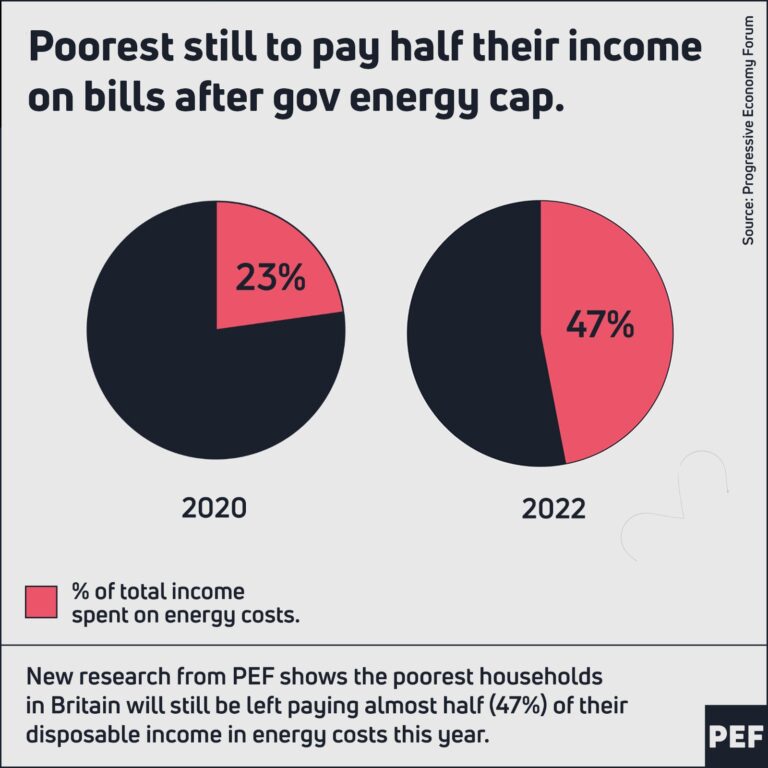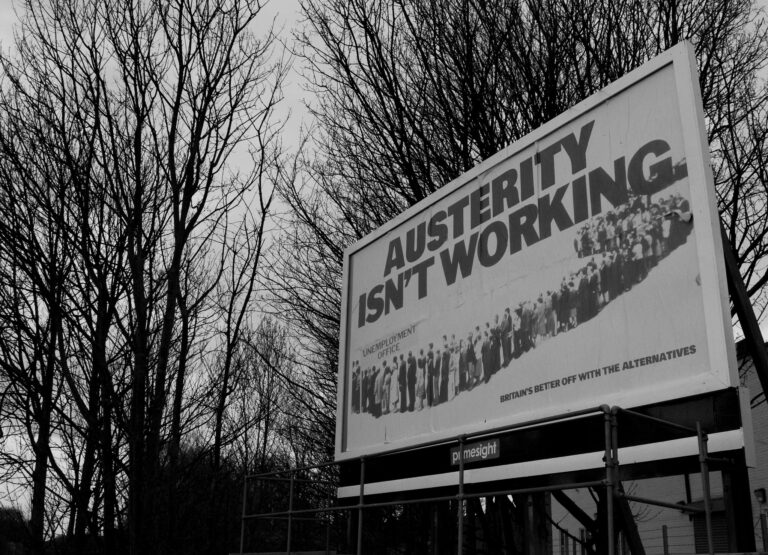The task is obvious. To avert permanent economic damage during the worst slump for 300 years, the government has to provide emergency credit to business, guarantee loans, offer grants, defer tax and rate payments and directly pay the wages of furloughed workers. To its credit the Treasury has tried to rise to the challenge. On top the Bank of England has launched a range of innovative financing vehicles, including stepping up its purchases of commercial bills. The problem is less their intent. It is rather that over decades Britain has consistently refused to create the necessary financial and institutional piping through which such necessary monies can flow in normal times – let alone at a moment of acute need.
Symbolic of the failure was that Britain’s 10,000 bank branches were not seen alongside petrol stations, supermarkets and hardware stores as offering a core economic function that needed to be kept fully open during the lockdown, instead of closing or opening part-time. Of course in a way the government was right. Bank branches in Britain have long ceased to be hubs supporting local enterprise: they now largely exist to process the documentation associated with providing mortgages or the odd financial transfer that does not lend itself to automation – hardly needed during lockdown.
But that is indicative of the problem. The British financial system’s long standing dissociation from the real economy of innovative wealth creation while embracing real estate lending in incredible volumes has widened over the last 30 years. The government may want to use banks as the pipes through which it can channel vital emergency credit to business. But the pipe network barely exists, and even where it does the pipes are shrivelled and silted up.
British clearing banks know their business customers largely as notations on centralised data bases. It is expensive and time-consuming to organise sophisticated credit scoring of business borrowers, let alone to get to know their business models, their leadership teams, their strategies and sales prospects. Indeed beyond London and the South East there is very little net ending to small and medium sized enterprises ( SMEs) at all. Credit scoring of small and medium sized companies is contracted out to agencies like Experian who have industrialised the process, or for larger companies left to the tender mercies of credit rating agencies. Banks want to conserve their capital and deploy it to maximise their financial returns, and on top regulators insist that the risk weightings associated with much business lending, especially SMEs, are significantly higher than those on real estate lending.
Lending to business is thus risky, low margin and expensive in terms of foregone opportunities to use scarce capital on more profitable lending to property. On top the banks suffer the same disability as the rest of Britain’s quoted companies: they have no anchor “block-holder” shareholders but rather the same shifting, often anonymous, shareholder base of institutional investors who, with honourable exceptions, are disengaged from the companies in which they invest and largely ignore their stewardship obligations. Their interest is in short term share price performance. Where the banks do have large shareholders they are “ activists” insisting that they promote even more short term profitability by even more disengagement from business lending.
Government schemes to help de-risk business lending – typically various business loan guarantee schemes – are themselves expensive, with the costs displaced onto the business borrower. Small wonder that of the £1.7 trillion of loans on British bank balance sheets in 2019 some £1.45 trillion were represented by mortgages. Lending to small and medium sized business stood at some £160 billion, of which £110 billion was real estate or property related. Manufacturing lending totalled £10 billion. Net new lending to the entire sector stood a miserly £15 billion over all 2019, a fraction of the credit advanced by regionally dispersed German banks – many co-operatively or publicly owned . To explain Britain’s much criticised incapacity, compared with Germany, to manufacture vaccines, ventilators, masks, testing equipment and PPE, you need hardly look beyond these figures.
The British Business Bank, set up by the Coalition government to plug the gap, is a misnomer in terms: it has been disallowed from doing any significant lending itself after intense lobbying by the banks who complained it might displace the private sector so that its principal job is to broker financial support, in particular government schemes, to particular borrowers that would otherwise not have known of them – a job which its some 300 staff in London and Sheffield do effectively. But besides public business and development banks in other countries – Germany, Holland, Sweden, South Korea, Japan – its size and scope is an embarrassment.
The necessary transformation of the entire system requires action on a number of fronts. In response to the crisis the Treasury has introduced Covid Business Interruption loans (CBILs) that companies can apply to banks for. To support CBIL lending the Bank of England has launched a new Term Funding scheme for Small and Medium Sized Enterprise (TFSME) that banks together with relaxing capital requirements ( and requiring the suspension of dividends), the Bank says could boost lending to £190 billion to SMEs over the next twelve months – as it dryly observes, 13 times more than the banks managed themselves over all of 2019. But as banks conserve their capital, they have little appetite to increase their lending 13 times – the scale that is necessary. In the most recent week banks lent £1.3 billion: weekly lending needs to run at ten times the rate £12-15 billion – as much as banks lend to SMEs in a year – if by mid-summer there is not to be an avalanche of closures and redundancies.
To dynamise what is happening he Chancellor should chair an emergency task force tasked with driving lending up by the day, to be monitored with the same intensity we monitor Covid testing. The British Business Bank, miniscule compared with industrial development banks in other countries, needs immediately to be given the mandate and capital to increase its own lending ten times – across the country. It must be tasked with getting the money to where it is needed across the country beyond the south-east – with the banks cajoled into becoming active partners. It will be a transformation of the role of the BBB into a fully fledged development bank in a matter of weeks – but if the army can build Nightingale hospitals at such speed the BBB must rise to the task in its sphere no less quickly. Its lending should not just be about preserving viable businesses: it should be thinking of supporting firms, especially SMEs, in key sectors, especially those identified as priorities by the Industrial Strategy. The MacMillan Committee recognised the problem ninety years ago. It is sad that it has taken a pandemic to trigger the necessary action.
Secondly bank shareholders need to say more vocally and publicly than they have hitherto that they will support banks as they lend to distressed lenders. It is a public interest function. As fast as possible a new Companies Act should require banks retail and commercial arms, as discharging core economic functions, to incorporate as public benefit companies whose task is first and foremost to transmit money and credit to achieve public interest outcomes. Profit will follow from the delivery of purpose. The Act should also lay a responsibility on shareholders actively to curate and steward the companies in which they invest, ensuring that they deliver on the purpose for which they were incorporated. Britain will thus create a new generation of commercial banks that serve the economy and society. Many good bankers would welcome the change.
Thirdly it is no longer exports that requires financial guarantees. The fourth industrial revolution is being driven by scientific advance. Intellectual property rights need to become as good as collateral as property, so that the risk weightings on both are the same. A transparent market needs to be established in intellectual property rights ( as Big Innovation Centre has consistently argued) so that they can be fairly valued, and then crucially insured by government just as it does exports, to create bankable low risk weighted collateral. This insurance function can also be extended to the top slice – say 20 per cent – of other loans to small business, so that insured IP loans, insured SME loans and eventually British Business Bank TFSME loans can be bundled together and sold as bonds to the UK insurance industry, allowing it to diversify part of its £1.9 trillion holdings of financial assets into bonds that directly create real wealth, with the funds recyclable for a fresh round of financing. The insurance industry should not be allowed to stand on the sidelines.
Some companies will not want loans, but equity: the venture capital and private equity industries must transmute themselves from their default role as predators and asset sweaters to long term patient investors – working with the newly created Futures Fund to take generous equity stakes in companies in need. Supporting intellectual capital rather than seeking property collateral should be new North Star of British finance
If there is not to be a terrifying slump followed by stagnation, the British financial and ownership system needs a revolution – and to take place in mere weeks. Good people abound in it, marginalised until now by the predominant culture of wealth extraction. They need to be unleashed. These measures taken together would transform the piping of the British financial system. Instead of being an engine to inflate property prices, it would become an engine to promote innovative enterprise – a crucial component of the economy the UK need to grow not just to avoid deep economic scarring in the months ahead but to support great businesses, jobs and livelihoods in the future. Once we get to the other side, the new systems of engagement and support need to be retained. Good, after all, might come from all of this pain.
Image credit: flickr/Mike Cohen








